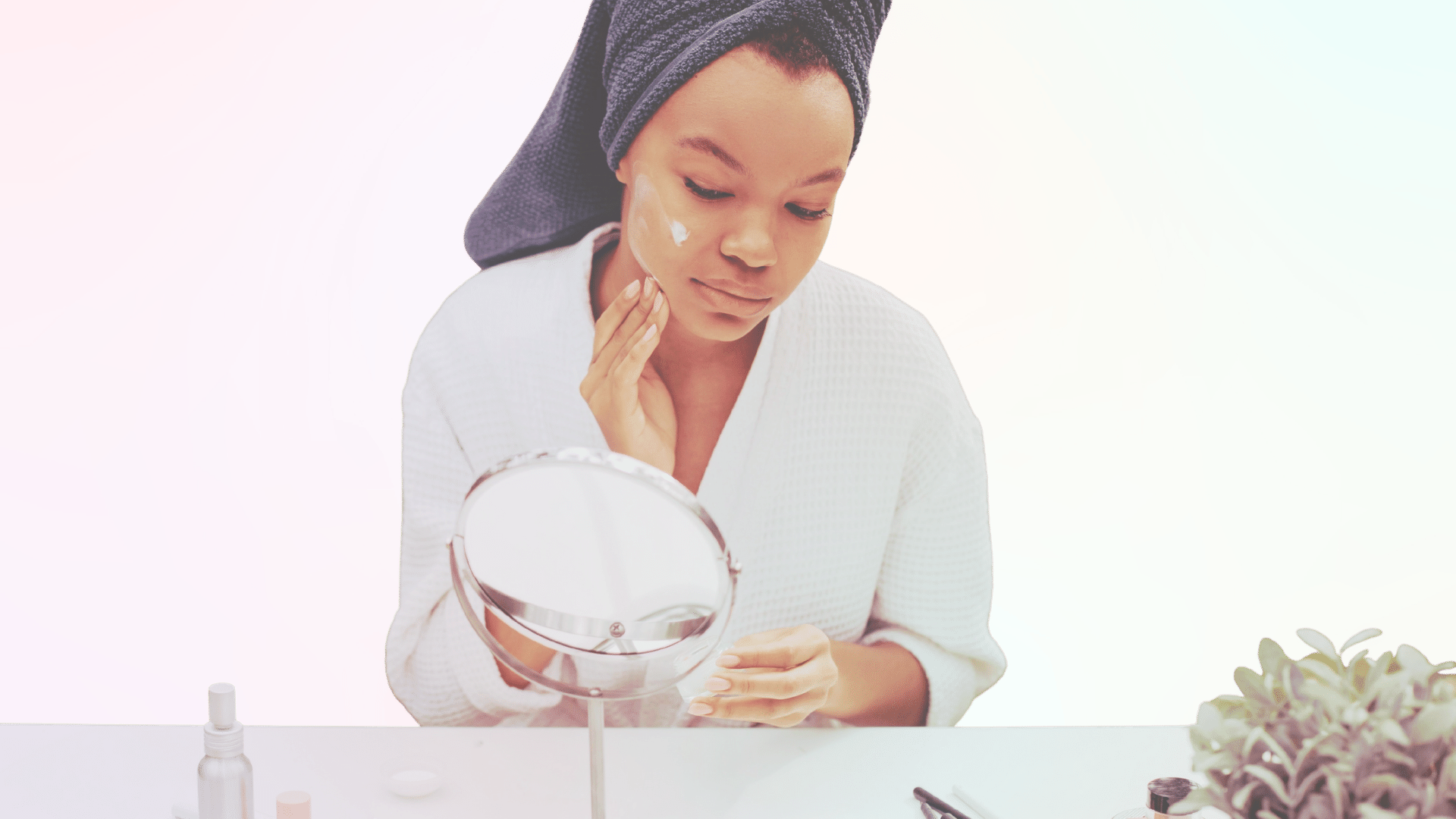 The vast majority of microorganisms that live on your body’s largest organ, the skin, are harmless or beneficial to the host. In what is referred to as a symbiotic relationship, these microbes cannot exist without a host to colonize, while the same microorganisms are currently being researched for the role they have to play regarding the wellbeing of humans. Researchers, physicians, and other experts are still unearthing the full scope of the role that bacteria have to play in reference to the immune system, weight gain, inflammation, and skin health, but the current research points to the need for significant changes with regard to how we conceptualize antibiotics, sanitation, bacteria, diet, and long-held assumptions about skin care methods
The vast majority of microorganisms that live on your body’s largest organ, the skin, are harmless or beneficial to the host. In what is referred to as a symbiotic relationship, these microbes cannot exist without a host to colonize, while the same microorganisms are currently being researched for the role they have to play regarding the wellbeing of humans. Researchers, physicians, and other experts are still unearthing the full scope of the role that bacteria have to play in reference to the immune system, weight gain, inflammation, and skin health, but the current research points to the need for significant changes with regard to how we conceptualize antibiotics, sanitation, bacteria, diet, and long-held assumptions about skin care methods
In today’s post, we are going to take a dive into the science of prebiotics, citing peer-reviewed studies and other expert sources on the matter. If you have heard the term “prebiotic skin care” thrown around recently and you are looking for some insight before you go head-first into the latest trend, we can hardly blame you. In fact, we fully support a consumer making an informed decision. To that end, we will do our best to objectively educate folks who could use a little more information on topics like gut health, prebiotics, the microbiome, and beyond. We at Aleavia Plant-Based Skincare hope you enjoy!
The Microbiome
These days, most of us have heard of “gut health” and probiotics to one extent or another. And many of us have heard and read about how the medical health professionals of the previous few decades had a major “swing and a miss” when it comes to understanding the beneficial role that bacteria has to play.
Fewer of us have heard the latest term to emerge from the conversation — the microbiome. The microbiome is simply the combination of parasites, yeasts, bacteria that comprise a living ecosystem on your skin, in your nose, and in your entire digestive system (stretching from your mouth to your anus). While most of the microbiome conversation revolves around gut health and nutrition, it probably comes as no surprise that a blog post written by an organic skin care brand will focus on the microbiome found on the skin.
It’s marvelous to consider that each of us carries an average of six lbs of bacteria in our collection of microbiomes. Still more astounding is to learn that each one of has 100 trillion bacteria, single cell protozoa, yeasts, and 1,000 trillion viruses living in and on our bodies. But beyond mind-numbing numbers, experts are realizing that your microbiome is directly connected with autoimmune health, heart disease, cancer, diabetes, weight, mental health, and skin conditions.
Immune System
Scientists are learning that the skin’s microbiome plays an integral role in regulating the body’s immune system, among other things. In a peer-reviewed study published by the US National Library of Medicine titled The Skin Microbiome, authors Julia Segre and Elizabeth Grice note: “The cutaneous innate and adaptive immune responses can modulate the skin microbiota, but the microbiota also functions in educating the immune system.” This is the give-and-take, symbiotic relationship we mentioned above.
The co-authors continue, “many of these microorganisms are harmless and in some cases provide vital functions that the human genome has not evolved. Symbiotic microorganisms occupy a wide range of skin niches and protect against invasion by more pathogenic or harmful organisms. These microorganisms may also have a role in educating the billions of T cells that are found in the skin, priming them to respond to similarly marked pathogenic cousins.”
While there is a variety of factors at play, including environmental, host, and others, it is worthwhile to note that the microbes on our skin play a role in regulating our immune system and achieving a healthy balance in other aspects of our wellbeing.
A Recent Increase In The Occurrence Of Skin Disorders
Although more research is needed to fully understand the interaction between the skin’s microbiome and skin issues like eczema, acne, or rosacea, it doesn’t take someone with five PhDs to notice the correlation between the overuse of antibacterial products and the resulting increase in skin disorders across Western culture.
Through factors like the overuse of antibiotics and antibacterial products along with the increased consumption of foods that diminish the ability of gut flora to, well, flourish, the layperson’s gut microbiome is in need of optimization to restore ideal functionality. In the same way, the same variables that harm the gut bacteria do the same thing to the skin’s bacterial ecosystem.
As the (too many to name) authors of a peer-reviewed article published on CellPress observe, the interaction between your microbiome and immune system begins before birth: “...the cutaneous microbiome composition in neonatal life is crucial in shaping adaptive immune responses to commensals, and disrupting these interactions might have enduring health implications.” Just days after birth, the researchers from the University of California San Francisco noted that these “T-cells” and their activity instigate a tolerance in the immune system to the newfound bacteria on the skin. This vital process informs the immune system, helping them differentiate between healthy and unhealthy bacteria on the skin.
To connect the dots, Dr. Rosenblum (of that same study), has this to say about an important consequence of the aforementioned facts. “One major clinical implication of this study is giving antibiotics to a child in early neonatal life is likely a disservice because this will limit the amount and type of bacteria that is seen by the adaptive immune system and this could be linked to the development of autoimmune, inflammatory skin diseases later in life,” Rosenblum said.
What Can We Do?
You might be thinking to yourself, “Well, I wish someone had learned that before I was born, because there isn’t much to do about it now.” We understand the sentiment, but don’t worry, prebiotic skin care is finally relevant. Though there isn’t currently a way (that we know of) to retroactively encourage an effective immune system/skin bacteria relationship for adults, there is more hope in reference to skin care.
While you are likely familiar with probiotics, prebiotics differ in that the former adds bacteria to a microbiome whereas the latter feeds the existing microbes to promote rejuvenation and general health. While we can’t claim to be experts about gut health, we have done our due-diligence when it comes to our prebiotic skin care products at Aleavia.
We have developed all-natural, organic skin care products that pull toxins and chemicals out of the skin while feeding the good bacteria that already exists on your skin. This rebalances the pH levels on your skin on a cellular level, resulting in alkaline, radiant skin. Using just seven organic ingredients that include Acadian Sea kelp, coconut oil, citric acid, soy lecithin, and aloe vera, those who consistently use Aleavia prebiotic skin care products see dramatic improvement, often achieving the most healthy skin they’ve ever had.
Who Is Aleavia For?
Our products are for everyone, yes, even babies and women during, before, or after pregnancy. We are truly a plant-derived, vegan skin care brand that offers a variety of prebiotic products for issues like eczema, generally dry skin, rosacea, acne, wounds, blemishes, sunspots, and even scars. Concerning scars, we’ve often seen fresh scars heal two to three times more quickly than if they had been left alone.
We recommend looking into our Prebiotic Skin Restoration Kit as a place to start. It includes our Prebiotic Purifying Facial Cleanser and our Prebiotic Restore Soothing Myst. Use them in tandem to receive an ideal outcome.
What Is There To Lose?
We readily admit that there is plenty left to learn about prebiotics, probiotics, the microbiome, and what our society needs to do to improve our health in a range of ways. But there are significant discoveries that have already been made that directly inform what we do at Aleavia. Traditional skin care routines involve harmful chemicals and toxins that might work for a time, yet fail to account for what is occurring on a cellular level. To achieve balanced, healthy, radiant skin, shop Aleavia today.






